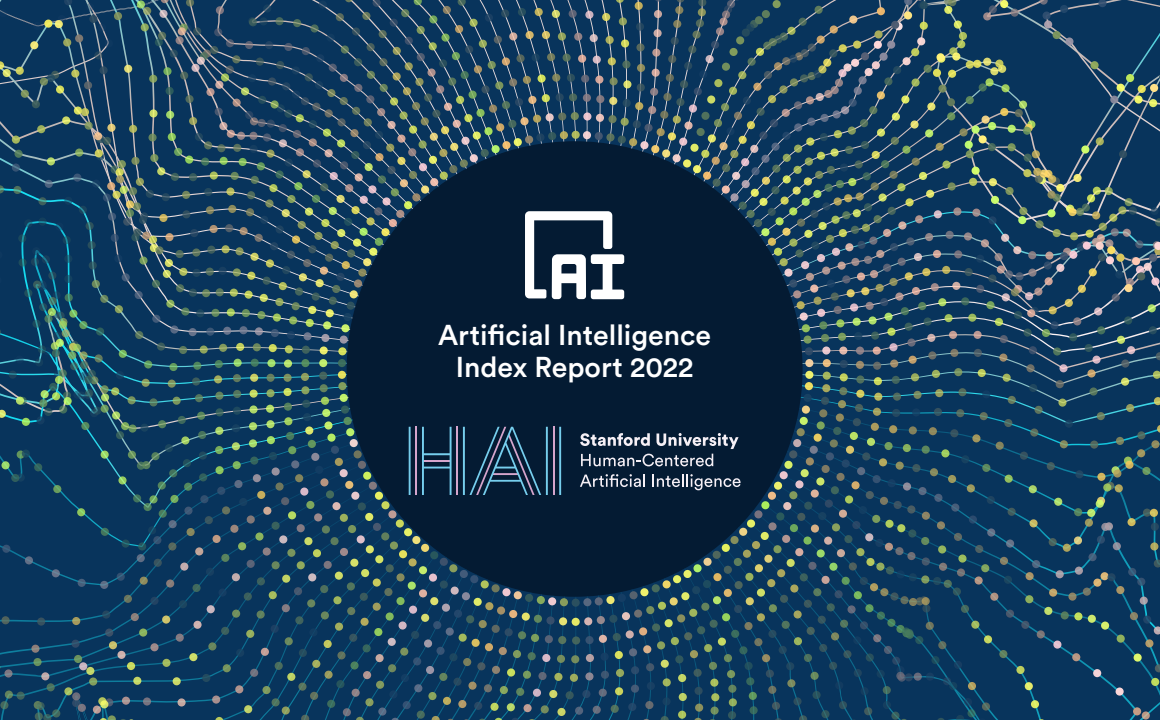
ΑΙhub.org
2022 Artificial Intelligence Index Report published

The 2022 AI Index Report has been published. Compiled by the Stanford Institute for Human-Centered Artificial Intelligence (HAI), it tracks, summarises and visualises data relating to artificial intelligence.
The aim of the report is to provide unbiased, rigorously vetted, and globally sourced data for policymakers, researchers, executives, journalists, and the general public to develop intuitions about the complex field of AI.
The report comprises five chapters covering the following topics:
- Research and development
- Technical performance
- Technical AI ethics
- The economy and education
- AI policy and governance
The report authors have highlighted eight key takeaways from their investigations this year:
- Private investment in AI soared while investment concentration intensified. Private investment in AI in 2021 was around $93.5 billion, more than double the 2021 amount. However, the number of newly funded AI companies continues to drop, from 1051 companies in 2019 and 762 companies in 2020 to 746 companies in 2021.
- USA and China dominated cross-country collaborations on AI. The USA and China had the greatest number of cross-country collaborations in AI publications from 2010 to 2021, increasing five fold since 2010.
- Language models are more capable than ever, but also more biased. Models are setting new records on technical benchmarks, but new data shows that larger models are also more capable of reflecting biases from their training data.
- The rise of AI ethics everywhere. Since 2014, there has been a fivefold increase in AI ethics publications.
- AI becomes more affordable and higher performing. Since 2018, the cost to train an image classification system has decreased by 63.6%, while training times have improved by 94.4%. T
- Data, data, data. Top results across technical benchmarks have increasingly relied on the use of extra training data to set new state-of-the-art results.
- More global legislation on AI than ever. The number of bills containing “artificial intelligence” that were passed into law grew from just 1 in 2016 to 18 in 2021.
- Robotic arms are becoming cheaper. The median price of robotic arms has decreased by 46.2% in the past five years, from $42,000 per arm in 2017 to $22,600 in 2021.
Find out more about the report here.
You can access the full pdf version here.
How to cite this report
Daniel Zhang, Nestor Maslej, Erik Brynjolfsson, John Etchemendy, Terah Lyons, James Manyika, Helen Ngo, Juan Carlos Niebles, Michael Sellitto, Ellie Sakhaee, Yoav Shoham, Jack Clark, and Raymond Perrault, “The AI Index 2022 Annual Report,” AI Index Steering Committee, Stanford Institute for Human-Centered AI, Stanford University, March 2022.
Past editions of the report
2021 AI Index Report
2019 AI Index Report
2018 AI Index Report
2017 AI Index Report










